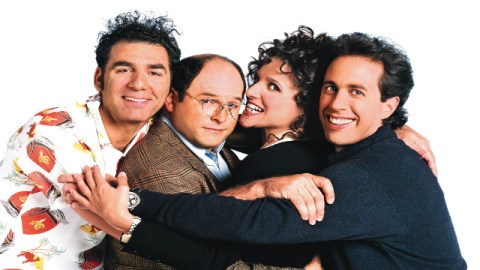Seinfeld’s Producer: Listen to Your Gut, Then Fight For What it’s Telling You.

What’s the Big Idea?
In the archetypal drama of the film and television business, it’s the uncompromising writer or director who does battle for her dream project against the Suits – the studio executives so paralyzed with fear of doing harm to the bottom line that they’re loathe to greenlight anything remotely new or interesting.
Obviously there’s some truth in this, when you consider the ratio of weird, groundbreaking shows like The Sopranos to, say, the latest spinoff of some vampire soap opera that was pretty lame to begin with. Studios don’t like to lose money, so any show that doesn’t fall under the umbrella of some hot new trend is viewed as a gamble. While niche channels like HBO and Showtime can get away with a bit of artistic experimentation, the mainstream giants of network television have a broader demographic and more to lose. This tends to make them a bit more conservative.
So when a culturally defining TV series like the Simpsons or All in the Family sees the light of day, you know that someone in the boardroom is sticking his or her neck out. In the case of Seinfeld, that was Warren Littlefield, former president of NBC. The pilot and the first season of the show tested horribly. The show was seen as too New York, too insular, and possibly even “too Jewish” for a national audience. But Littlefield believed in the vision of the show’s co-creators, Jerry Seinfeld and Larry David, and in the show’s potential to evolve into something great. Beyond one bit of (wise) executive meddling – making them add a woman, Elaine, to the cast – Littlefield just took the risk of fighting to keep a show he believed in on the air for longer than the four episodes NBC originally commissioned.
Warren Littlefield, former NBC President, on trusting your instincts.
Littlefield advises young people entering any field to trust in their instincts even when they run counter to common sense in the industry, then to fight passionately for the projects and ideas they believe in. In his own case, this meant listening to each new series pitch as if a “scalpel had just been sliced down through my core and I was just open and visceral. And if the idea made me want to just shut down and pull back, I felt, you know, that’s not where I want to be. That’s not the idea of the world I want to play in. But when I felt my body going yes and wanting more and leaning forward, I had to listen to that.”
This approach made Littlefield one of the most successful presidents in NBC history. He turned the network away from the brink of bankruptcy and into the “must-see-tv” home of Seinfeld, Law & Order, Frasier, Friends, ER, Homicide: Life on the Street, Will & Grace and The West Wing.
What’s the Significance?
The higher the stakes, the greater the risks, but the greater, too, the potential reward. It may be possible to skate by in a high-pressure industry making safe and mediocre decisions, but it won’t be much to talk about on your deathbed. It might not even be that safe anymore. Take television as an example, but this applies to almost any industry in the age of the internet – the proliferation of outlets and decreased production costs have resulted in an explosion of channels and programming. To stand out and rise to the top in this highly competitive environment demands real originality.
This doesn’t mean risk-taking for the sake of risk. But it may mean disregarding the chorus of opinions that – given equal weight – cancel one another out and leave you with nothing but white noise.
Follow Jason Gots (@jgots) on Twitter
Image credit: Shutterstock.com




